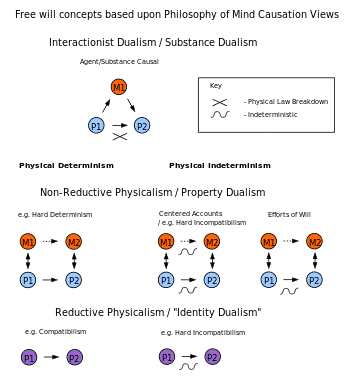Asking Physicists About Free Will

My buddy Jason works at FermiLab, and he posted recently on one of my free will threads, saying he was going to ask some physics friends about something free will related.
I asked him to ask them what they thought of free will in general, and he asked me to frame the argument so he could ask the question properly. So here’s my attempt at a two question survey.
—
I am trying to determine how many physicists believe we have free will in the sense that grants moral responsibility, since that is the primary reason the subject has been debated for over 2,000 years.
So here are two statements about free will and moral responsibility.
OPTION 1: We have adequate free will to support moral responsibility because we clearly experience making decisions every day, and society could not function if we abandoned the concept of people being responsible for their actions. Furthermore, we could not tell the difference between "real" free will and the kind of free will we actually have, even if there were a difference. And if we could not tell the difference between the two there isn’t much of a point of arguing for one or the other. Reality is what we live every day. And in that reality we live our lives, we make choices, and those choices have consequences. All the determinism in the world is not going to change that, and nor should it. Moral responsibility is just as real as the choices we make every day, and those feel pretty real to me.
OPTION 2: We do not have adequate free will to support moral responsibility because for any given decision that is made, every single variable (including randomness) is ultimately physics and outside the control of the person. So for any given previous decision, the person must have been physically unable to willfully do otherwise. And if someone is physically unable to do otherwise they simply cannot be held morally responsible what they did do. This is not a plea to discard the criminal justice system, which would be impractical. It’s a plea to accept unpleasant truth and incorporate it into how we shape that system, i.e. by focusing more on consequentialist rather than retributivist approaches to behavior correction.
Which do you agree with more?
—
Jason, I’m going to buy a bunch of Starbucks cards so you can give them out to people who participate.
Notes
The only thing I know about formal survey taking is that I don’t know anything about formal survey taking. If anyone has any ideas about how to fix gross problems with this approach, let me know. I’m ok with it not being professional, but would rather it not be juvenile.
One possible improvement could be adding a third option of "other", or "neither". I read somewhere that you’re supposed to have a pressure release valve. But again, no idea where I got that from.